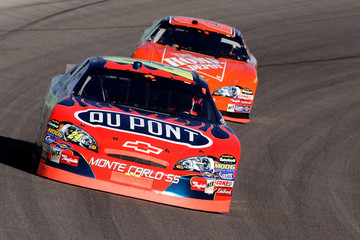There are tens of thousands of jobs in racing. Would you like one?
The spectrum of racing jobs is great. We know where it ends: center stage at the Waldorf. But, where does it begin? A racing job, by extension, can include any position that is represented by the cars and teams we watch weekly.
If that seems like a stretch, you’ve never spoken with anyone who sees themselves as part of the team while selling boats at Bass Pro Shops. Others fanatically support a team of their dealership’s car make. For them it’s win on Sunday, smile on Monday. Bragging rights are great. Being part of the group, even in a distant association adds a tremendous amount of enjoyment to racing.
If you’d like racing to be a more than a weekend ritual, there are many positions to consider for a career. Best of all, the competitive nature of racing extends beyond the track. So, each full-time employee in racing is the best available for what they do. If you can demonstrate that you’re a better crewmember, public relations person, driver, manufacturer representative, or – ahem – writer, a career can be yours.
How, though, do you get that chance to demonstrate you’re the best candidate?
There’s an old saying: You can’t get a job without experience and you can’t get experience without a job. That doesn’t apply in racing.
You can get experience for a motorsports job without having a full-time one, but there’s a catch: you get the experience for a full-time job by doing a part-time job for part-time or no pay. If you’re not willing to do that, for as long as it takes, then maybe you don’t have what it takes to perform for a full-time job because racing will challenge you like few other professions. You have to want it for reasons beyond the excitement of drawing a paycheck from something that others pay to watch.
Maine transplant Steve Letarte started as a 15-year-old floor-sweeper at Hendrick Motorsports. Now Jeff Gordon refers to him as crew chief. Your life’s circumstances may prevent that type of effort for a goal that’s anything but guaranteed.
You can accelerate those opportunities with the relatively new college-type school curriculums that prepare you for a career in racing. And, many are from accredited colleges and universities so employers know the graduates are well qualified.
Teams and/or businesses are looking for a candidate that has the determination to do the job once the excitement of a motorsports career wears off. Graduation proves that you’re ably prepared for both.
Driving schools have existed for years. They do a great job of identifying the fundamental mistakes that go beyond style of an individual driver and focus on the undeniable areas for improvement. While they can’t teach a driver how to win, or more importantly how to be a winner, they are exceptional in helping racers, just look at their graduates list: many look like the finishing order from the most recent Sprint Cup race.
Like racing, however, schools go beyond the driver. You can learn the particular area that interests you the most since full-time crewmembers are highly specialized. Years ago, everyone did it all. Doug Richert, crew chief for Dale Earnhardt’s first Sprint Cup championship in 1980 remembers driving the hauler, building the motors, doing the setup, and making the calls from the pits. These days, schools are as specialized as the jobs to be done. Engine builders, chassis specialists, fabricators, and those guys who go over the wall on pit stops are all required for a winning team.
If you know you want wrenches as part of your day, but aren’t sure what particular line of work is best-suited to you, visit the schools, their websites, a local race team, or other venue to be exposed to the various job skills that are needed.
Keep in mind, however, that dedication of time and effort of team members has not changed. It’s easy to overlook the day-to-day requirements of a Monday through Friday job when all you see is the weekend work, but those weekends that require crewmembers are approaching 40 per year. Are you working that type of schedule now? Can you do it? Can your family tolerate it? Some jobs, including those in the shop, don’t require travel. But if your dream is to be part of the race team and wear that uniform, maybe get a little tv time, keep in mind that those guys we see doing so, have made tremendous sacrifice to be there.
A plethora of office, managerial, and public- and sponsor-relations jobs have been created since the time racing became big business.
While it may seem incredibly appealing to spend nearly every waking hour with your favorite driver, there are challenging aspects to the role of public relations person. Consider that you may not end up with your favorite driver (the first indication that your motivation for the position has to be about providing news and information about a race driver, even if that’s not your favorite one). And, you may work for the team, not the driver (some guys have two: a personal assistant that they’ve hired and a media relations person provided by the team). What happens if you work for the team and they switch drivers? Are you ready to start working with the new guy?
No matter which driver you work with, it’s a challenge. The demands and requests for every driver’s time are overwhelming. And even though your driver has done more than anyone could reasonably request, there is a limit, even if it’s a guy who is motivated to meet the press, the sponsors, or a charity group. Guess who gets to explain to everyone who, ‘just wants a minute’ that he won’t be available?
A career in racing can be incredibly rewarding, provided what you see as a reward is something that racing jobs can provide and that you’re willing to do the job. Are you the best available for what you’d like to do? Consider a school and make it happen.

